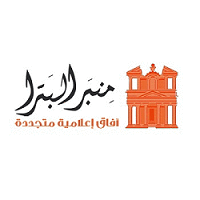أشارت المنسق الاقليمي والدولي للشراكات البحثية والتدريب والتعاون بجامعة البترا الدكتورة آية الكيلاني إلى أن ضعف الدعم المالي يدفع الباحثين في مجال التغذية “إلى الدراسات المسحية أكثر من الدراسات السريرية والاكلينيكية”، معتبرة أن ضعف الدعم المالي وكثرة الاجراءات الورقية وغيرها من المراسلات الحكومية للحصول على بعض المعلومات التغذوية والغذائية الخاصة بالأردن يزيد من صعوبات إنجاز الدراسات الغذائية السريرية.
شاركت الكيلاني من قسم التغذية في جامعة البترا في ورشة بعنوان “تنمية وتطوير القيادات التغذوية في الأردن” ضمن مشروع مختبر الابتكار للتغذية في الأردن التابع لجامعة تافتس في بوسطن وبتمويل من الوكالة الأمريكية للتنمية الدولية.
وأشارت الكيلاني إلى أن “العمل المنفرد وعدم تقبل الاختلاف في وجهات النظر هو أحد أهم المحددات التي يواجهها البحث العلمي في الأردن. مقترحة تعزيز التعاون البحثي بين الجامعات على المستوى المحلي والإقليمي والدولي للارتقاء بالبحث العلمي وتجاوز العقبات التي من الممكن ان تواجه الباحثين المنفردين”.
وقالت الباحث الرئيس لمشروع مختبر الابتكار في الأردن الدكتورة شيباتي غوش إن “تطوير المهارات القيادية ودعم التميز سواء في البحث أو السياسة التغذوية أو البرمجة التغذوية أمر مهم ليس فقط لتعزيز القدرات الفردية، ولكن أيضا لدعم النجاح الجماعي”.
Panel Discussion: Nutrition leadership development in Jordan
The inaugural Nutrition Research Designs and Methods Workshop is an initiative of the USAID-supported Jordan Nutrition Innovation Lab project at Tufts University in collaboration with the University of Jordan (School of Nursing, Medicine, and Agriculture). The workshop will be held from August 6-11, 2022, in Jerash, Jordan. The overall goal of the workshop is to train upcoming Jordanian students, professionals, and young scientists on the rigour of research methodology and enhance skills in conceptualization, development and implementation and analysis of robustly designed quantitative research protocols.
As part of this workshop, a panel discussion will be organized on August 11, 2022, at 11:30 am. The session will be for one hour and will be followed by the distribution of course certificates and workshop closing.
Policy makers, advocates, programming and policy specialists and academics who work in linking science to policy around nutrition play a critical role in ensuring sustained action. Developing leadership skills and supporting excellence whether in research, policy and programming is important not only to enhance individual abilities but also to support collective success. In this panel, we bring together three professionals working in the policy, program, and science space, in Jordan and outside, providing insights from the perspective of their own sectors.
Panelists include
Eng. Rawhiya Barham, Head, Department of Nutrition, Ministry of Health
Dr. Samah Al Quran, Project Specialist, USAID Jordan
Dr. Ahmed Kablan, Senior Science Advisor, USAID Bureau for Resilience and Food Security, Washington DC
Dr. Ayah Zaidalkilani, Assistant Professor, Petra University
The session will be for 1 hour and each panelist will have 10 minutes to provide their insights followed by a round of Q&A
Specific Questions
• According to you, what are the key gaps and barriers in Jordan’s MIYCN research agenda?
o Asking the right/appropriate research questions
o Rigor in methods and implementation of research
o Individual (Human) and Institutional capacity to conduct research (including financial and non-financial resources)
o Institutional barriers to facilitate research implementation (for example, IRB process, approval
• From your own personal perspective and experience, how does an early career professional make decisions with respect to their own professional development?
• What advice would you give young and early career professionals and researchers present here today with respect to their own career trajectory and their contributions to research and policy action ? in Jordan






